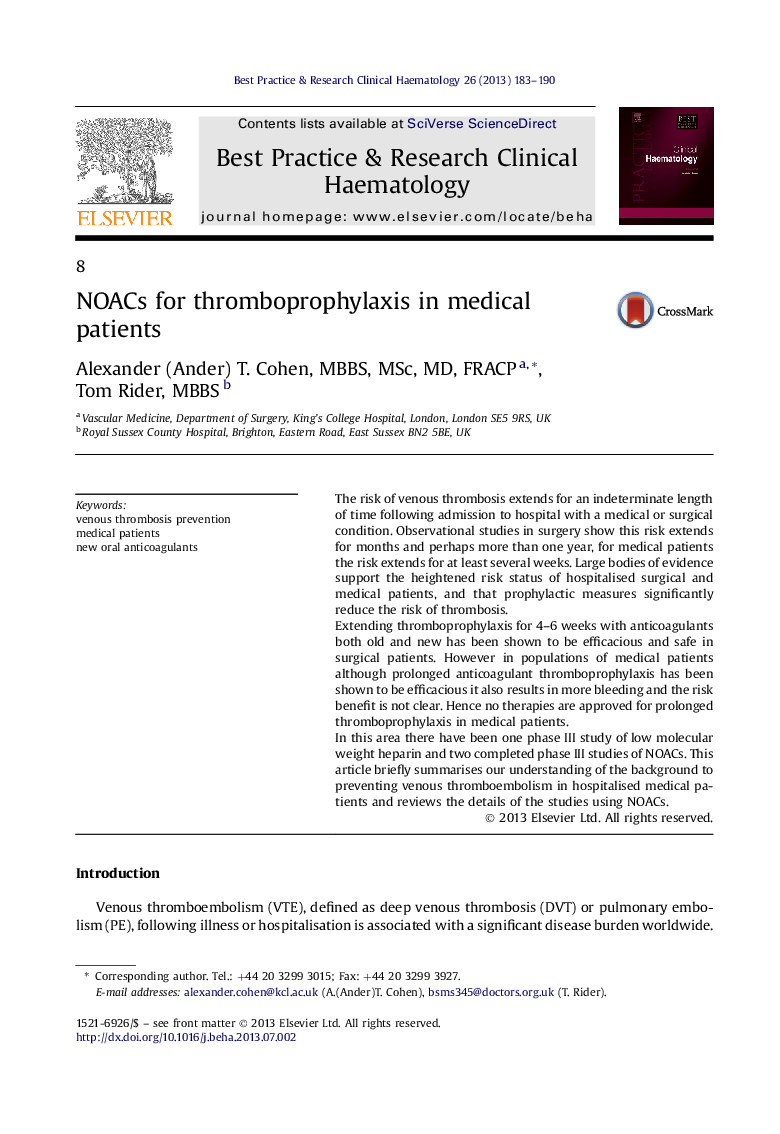| Article ID | Journal | Published Year | Pages | File Type |
|---|---|---|---|---|
| 2100698 | Best Practice & Research Clinical Haematology | 2013 | 8 Pages |
The risk of venous thrombosis extends for an indeterminate length of time following admission to hospital with a medical or surgical condition. Observational studies in surgery show this risk extends for months and perhaps more than one year, for medical patients the risk extends for at least several weeks. Large bodies of evidence support the heightened risk status of hospitalised surgical and medical patients, and that prophylactic measures significantly reduce the risk of thrombosis.Extending thromboprophylaxis for 4–6 weeks with anticoagulants both old and new has been shown to be efficacious and safe in surgical patients. However in populations of medical patients although prolonged anticoagulant thromboprophylaxis has been shown to be efficacious it also results in more bleeding and the risk benefit is not clear. Hence no therapies are approved for prolonged thromboprophylaxis in medical patients.In this area there have been one phase III study of low molecular weight heparin and two completed phase III studies of NOACs. This article briefly summarises our understanding of the background to preventing venous thromboembolism in hospitalised medical patients and reviews the details of the studies using NOACs.
